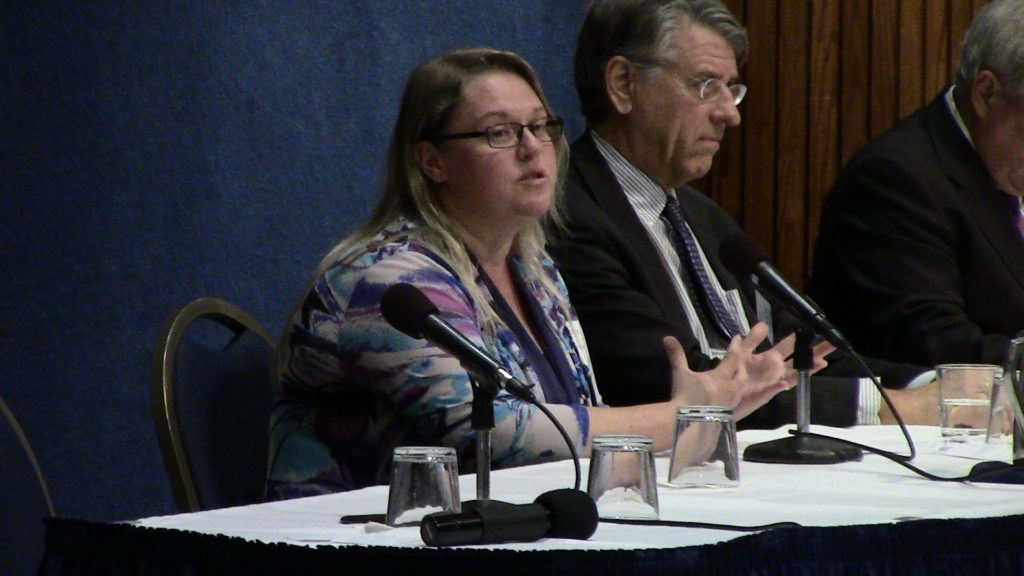
The creation of the United States Center for Space Law, a non-governmental organization dedicated to the study of the laws of outer space, was announced 18 Oct 2019 at the 12th Annual University of Nebraska DC Space Law Conference. The announcement was made between panel sessions held at the National Press Club in Washington, DC.
The new institution will carry forward the work of the University of Nebraska Space Law Network, as well as facilitate a US-based institution similar to the International Institute for Space Law, and with no small amount of inspiration from the operations of the European Centre for Space Law, which is based at the ESA in Paris.
While ESA and the European Centre for Space Law have a clear and established relationship, the USCSL will be an independent 501c3 non-profit organization. It is not directly funded by NASA, but will be assigned some funds previously received by the University of Nebraska. The effort builds upon the University of Nebraska’s efforts to create law programs focused on space and telecommunications law, as well as efforts to build a national network of space law professionals.
The remainder of the conference was largely a conventional view on United States Space Policy, with a general sense of the need for American action to settle outstanding questions, with the sense of Europe and Japan as partners and fellow innovators, though there was also a sense that European policy was also expanding without clear focus, and centres of authority were proliferating.
Though the first session’s insights into developing commercial space legislation in the US and Europe were somewhat hampered by the unplanned absence of a SpaceX representative, it was left to Audrey Powers of Blue Origin to speak plainly about how the space industry felt about the FAA’s recent effort to rush new commercial spaceflight rules out the door.
The panels continued with a featured panel of space lawyers from NASA, JAXA, ECSL, and CNES, who provided a comparative understanding of the complexities of international space cooperation. Japan’s approach, somewhat like the US, often requires policy changes to international initiatives at the space agency to pass through multiple government agencies for final approval. On the other hand, in France, CNES is authorized to sign, and change, space agreements on behalf of France.
The conference also included insight on the spectrum issues in the satellite communications industry, and the unique challenges when space-based networks compete against terrestrial networks, and the vagaries of negotiations at the ITU.
Finally, the conference included updates on efforts to the Woomera Manual, an effort of four universities, lead by Stacey Henderson at the University of Adelaide, to create a clear and complete compendium of the active, existing laws of war in space – an effort limited by the unclear positions of many states on key space policy questions, and by the propensity of many states to cloud their space programs, especially military space operations, in secrecy. Another challenge comes from how the field of space law continues to draw creative minds with active imaginations, which often spend valuable conference time not on settled law, but on other, as-yet unresolved questions, like whether astronauts could become prisoners of war, even when treaties presently accord them a diplomatic status.
The event was capped off by a lounge event celebrating Women in Space Law, on the very same day the first all-female spacewalk took place in orbit at the International Space Station. Overall, the conference demonstrated the continued leadership of Nebraska Law on legal matters in space. The evolution of the United States Center for Space Law will certainly be a factor in next year’s conference, already scheduled for 2 October 2020 at the National Press Club in Washington, DC.

One thought on “University of Nebraska launches United States Center for Space Law”
Comments are closed.